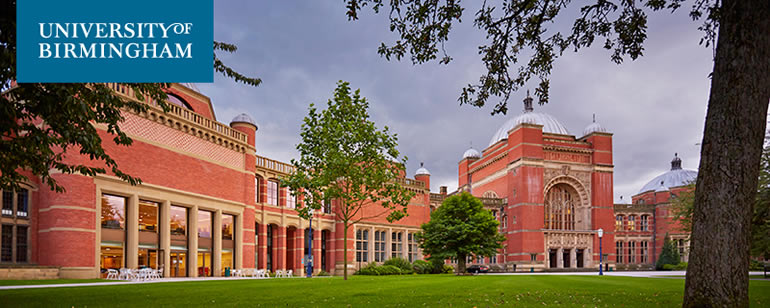Data Science MSc
Advances in computer science allow us to collect and store more data than ever before. However, making sense of all of this data is a challenge. Our MSc in Data Science will give you the skills to address these challenges through the use of computation.
How do we use algorithms responsibly, ethically and legally? How do we visualise the results? In the very near future, most commercial and governmental organisations will depend on their ability to meet these challenges.
This Data Science Masters/MSc has been designed to get people from a variety of academic backgrounds up to speed with the state-of-the-art in data science. You'll learn programming and data management skills so that you can collect and manipulate data, advanced techniques for analysing and revealing patterns in data, and visualisation skills so that you can turn large data sets into something decision-makers can make sense of.
You will study six, 20-credit fundamental compulsory modules and a 60-credit data science project. You will come to understand the cutting-edge contemporary challenges in data science and in a 20-credit group project you will try solving them through collaboration, and then complete a substantial individual project during which you will be able to showcase what you have learned.
Intakes
- Sep
Application Processing Time in Days: 15
Minimum English Language Requirements
| English Level Description | IELTS (1.0 -9.0) | TOEFL IBT (0-120) | TOEFL CBT (0-300) | PTE (10-90) | |
|---|---|---|---|---|---|
| Expert | 9 | 120 | 297-300 | 86-90 | |
| Very Good | 8.5 | 115-119 | 280-293 | 83-86 | |
| Very Good | 8 | 110-114 | 270-280 | 79-83 | |
| Good | 7.5 | 102-109 | 253-267 | 73-79 | |
| Good | 7 | 94-101 | 240-253 | 65-73 | |
| Competent | 6.5 | 79-93 | 213-233 | 58-65 | |
| Competent | 6 | 60-78 | 170-210 | 50-58 | |
| Modest | 5.5 | 46-59 | 133-210 | 43-50 | |
| Modest | 5 | 35-45 | 107-133 | 36-43 | |
| Limited | 4 | 32-34 | 97-103 | 30-36 | |
| Extremely Limited | < 4 | < 31 | < 93 | < 30 |
Job Opportunity Potential
Our graduates find themselves in a variety of environments within academia, research, industry, government and private organisations. The following is a short list of research and vocational areas:
- Software Engineering: developing methods for producing software systems on time, within budget and with few or no defects
- Software Applications: applying computing and technology to solving problems outside the computer field, eg, in education or medicine
- Computer/Cyber Security: covers all the processes and mechanisms by which computer-based equipment, information and services are protected from unintended and unauthorised access, change or destruction
- Artificial Intelligence: developing computers that simulate human learning and reasoning ability
- Information Technology: developing and managing information systems that support a business or organisation
- Theoretical Computer Science: investigating the fundamental theories of how computers solve problems and applying the results to other areas of computer science
- Operating Systems and Networks: developing the basic software computers use to organise themselves or to communicate with other computers
Our graduates find themselves in a variety of environments within academia, research, industry, government and private organisations. The following is a short list of research and vocational areas:
- Software Engineering: developing methods for producing software systems on time, within budget and with few or no defects
- Software Applications: applying computing and technology to solving problems outside the computer field, eg, in education or medicine
- Computer/Cyber Security: covers all the processes and mechanisms by which computer-based equipment, information and services are protected from unintended and unauthorised access, change or destruction
- Artificial Intelligence: developing computers that simulate human learning and reasoning ability
- Information Technology: developing and managing information systems that support a business or organisation
- Theoretical Computer Science: investigating the fundamental theories of how computers solve problems and applying the results to other areas of computer science
- Operating Systems and Networks: developing the basic software computers use to organise themselves or to communicate with other computers
PSW Opportunity
- 2 Years PSW is applicable after completing a minimum duration of 9 months course (like- Undergraduate, Postgraduate Level)
- 3 Years PSW is applicable after completing PhD level courses.
Admission Requirement / Eligibility Criteria
- 2:1 Honours degree in any subject plus Grade A (or above) in A Level Mathematics or equivalent (if your first degree is not Mathematics). Please upload evidence of this at the point of making your application. We cannot consider your application without this.
If you have have undertaken studies outside the UK and have not taken A Levels, you can check if you hold the suitable equivalent.
Students who have not studied in English must pass a recognised English test. Learn more about entry requirements.
- IELTS 6.5 with no less than 6.0 in any band is equivalent to:
- TOEFL: 88 overall with no less than 21 in Reading, 20 in Listening, 22 in Speaking and 21 in Writing
- Pearson Test of English (PTE): PTE Academic 59 in all four skills
- Cambridge English (exams taken from 2015): Advanced – minimum overall score of 176, with no less than 169 in any component.
For More Information Please Contact To Our PSA Counselor.
- Course Type: Full Time
- Course Level: Masters/PG Degree
- Duration: 01 Year
-
Total Tuition Fee:
36000 GBP
Average Cost of Living: 13632 GBP /year
Application Fee: 50 GBP
Similar Programs
- Psychology MSc at University of Birmingham
- Advanced Computer Science MSc at University of Birmingham
- Clinical Neuropsychiatry MSc at University of Birmingham
- Molecular Biotechnology MSc at University of Birmingham
- Computer Science MSc at University of Birmingham
- Cyber Security Masters/MSc at University of Birmingham

